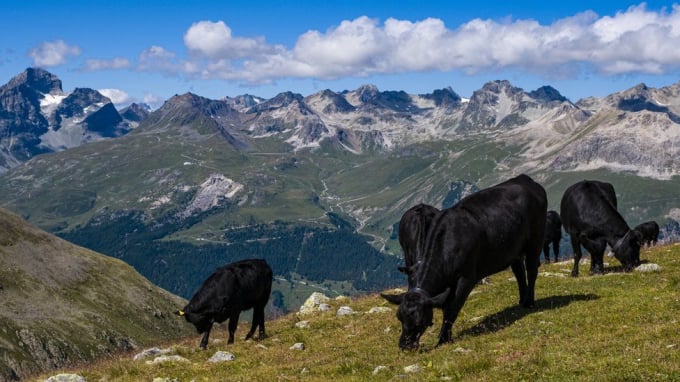May 24, 2025 | 16:28 GMT +7
May 24, 2025 | 16:28 GMT +7
Hotline: 0913.378.918
May 24, 2025 | 16:28 GMT +7
Hotline: 0913.378.918

Switzerland is a byword for pristine nature - but environmentalists say that image is flawed
One initiative proposes to end subsidies to farmers who use such pesticides, while another one would ban them altogether within 10 years.
Supporters point to worrying levels of pesticides in water, and damage to plants, animals and insects.
But Swiss farmers warn the proposals will put many of them out of business.
Pesticides are chemical or biological agents used to control pests.
Voting is also taking place on Sunday on other initiatives: anti-terrorism legislation, a new tax on fossil fuels and emergency Covid-19 funding.
Switzerland's system of direct democracy means all major decisions in the Alpine nation are taken at the ballot box.
Campaigners simply have to gather 100,000 signatures to ensure a nationwide vote.
If approved, the pesticide initiatives would go much further than the handful of towns and regions around the world that have already banned all synthetic pesticides.
It would also be of greater global significance than the ban imposed by Bhutan in 2013, as Switzerland is the home of the world's biggest pesticide manufacturer, Syngenta.
"I'm going to vote 'Yes' - we have to think about the future. Pesticides damage our health," Geneva resident Marie Lenbaus said.
Both proposals are widely backed by young urban voters.
But Swiss farmers say they are already complying with some of the strictest rules in Europe. They have seen their jobs and income decline over the last 20 years, and now they are furious, the BBC's Imogen Foulkes in Bern reports.
"You find a lot of people, especially in the cities, they have not even a clue what farming means," said Martin Haab, president of Zurich Farmers Association.
"So, if they have two tomatoes in their garden in front of the window, they think they understand farming and they know how to do organic farming," he said.
Switzerland's farming lobby is strong, and the latest polls show they might just have the edge, our correspondent says.
But she adds that even if voters reject a ban, this debate over pesticides has been so intense that it will not go away. Everyone agrees the country's pristine environment must be protected - they just do not agree on how.
(BBC)

(VAN) Alt Carbon has raised $12 million in a seed round as it plans to scale its carbon dioxide removal work in the South Asian nation.

(VAN) Attempts to bring down the price of the Japanese staple have had little effect amid a cost-of-living crisis.

(VAN) Fourth most important food crop in peril as Latin America and Caribbean suffer from slow-onset climate disaster.

(VAN) Shifting market dynamics and the noise around new legislation has propelled Trouw Nutrition’s research around early life nutrition in poultry. Today, it continues to be a key area of research.

(VAN) India is concerned about its food security and the livelihoods of its farmers if more US food imports are allowed.

(VAN) FAO's Director-General emphasises the need to work together to transform agrifood systems.

(VAN) Europe is facing its worst outbreak of foot-and-mouth since the start of the century.